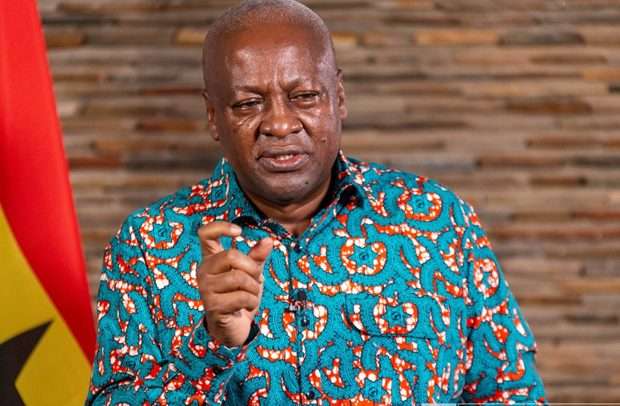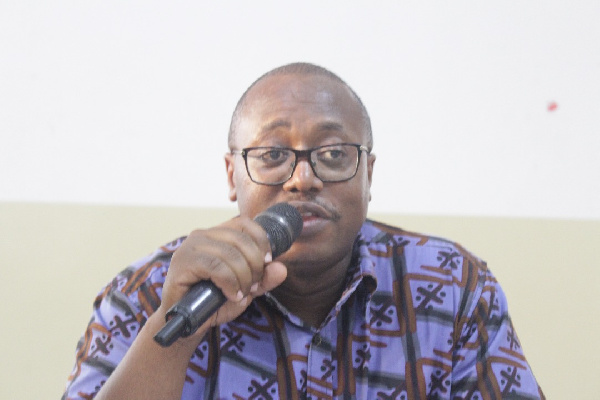In a bid to clear the air on growing public debate, Minister for Government Communications, Felix Kwakye Ofosu, has firmly defended President John Mahama’s acceptance and subsequent donation of two electric vehicles, saying the President acted within the bounds of Ghanaian law.
The controversy erupted following President Mahama’s public declaration that he had received two electric vehicles as gifts—one from a Ghanaian company and another from a Chinese firm operating in Ghana.
Rather than retain them for personal use, Mahama opted to hand the vehicles over to the state. His decision came shortly after the launch of a new Code of Conduct for appointees, signaling a renewed commitment to ethics and transparency within the administration.
“There is no law that prohibits the acceptance of gifts. Some companies provide their products to prominent individuals in the hope that, by using them, these individuals will increase public awareness of the products and potentially encourage others to patronise them.”
Felix Kwakye Ofosu
According to the Minister, President Mahama’s receipt of the electric vehicles fell within these accepted practices.

Beyond the optics, however, Kwakye Ofosu emphasized that the donation supports a broader national objective—advancing Ghana’s green energy agenda. “The cars in question are electric vehicles… and the companies gifted the cars to the President in line with the broader goal of transitioning to green energy.”
The President’s use of the cars, he explained, is meant to serve as a catalyst for public interest in environmentally sustainable transport. “His use of the vehicles could help encourage the public to adopt them.”
Mahama’s Gift Rules Raise Eyebrows
The political fallout, however, isn’t about the cars themselves—it’s about the rules that govern such transactions.
The Code of Conduct, while well-intentioned, appears to walk a fine line between legality and public perception. Under Ghanaian law, gifts above a value of GH₵20,000 must be declared and turned over to the state—a requirement Mahama reportedly fulfilled.
“If a gift exceeds GH₵20,000, it must be declared and handed over to the state. That is precisely what President Mahama did, so he has not committed any offence.”
Felix Kwakye Ofosu

Still, critics argue the gift ceiling is excessively high and opens the door for ethically questionable exchanges to be deemed acceptable under technicalities.
Civil society voices have also raised concerns about how such guidelines will be monitored and enforced, especially in the absence of independent oversight.
Adding more context, Kwakye Ofosu highlighted that this rule is not unique to Ghana. He noted that similar provisions exist in other democracies, with the primary variation being the monetary threshold.
While this comparison might satisfy legal purists, it does little to quell suspicions among a public that has grown weary of vague accountability.
A gift of such magnitude—even when declared—will always invite scrutiny, especially in a nation grappling with transparency deficits.
Public Ethics or Public Relations?
The unveiling of the new Code of Conduct came with a firm admonition from President Mahama to his appointees: maintain integrity or be shown the door.
The policy document reportedly outlines strict standards for public officials, including penalties such as dismissal for those found in violation.
However, not everyone is convinced of its sincerity or effectiveness. Among the critics is Dr. Kojo Asante, who voiced serious reservations about the President’s decision to accept high-value gifts.

He warned that such acts could undermine the presidency’s moral authority and blur the lines between leadership and personal interest.
“I think it’s a no, no, because these are high-value gifts. How are you going to determine whether the President gets influenced or not in those kinds of scenarios?
“Inasmuch as we want to discourage private individuals or people of any kind, it’s the President we are talking about, and the President has a lot of power to create these kinds of conflict-of-interest scenarios that you can’t really cure because it’s very difficult to establish any benefit one way or the other.”
Dr. Kojo Asante
Dr. Asante’s comments reflect a broader skepticism surrounding the new Code. Critics argue that without legal reinforcement, such frameworks risk being reduced to mere tokens of good governance—symbolic but ultimately toothless.
This skepticism is further fueled by unanswered questions: Will the Code be legislated to ensure continuity beyond Mahama’s tenure? What enforcement mechanisms will be in place? And how will citizens be empowered to hold public servants accountable?
As Ghana aspires toward sustainable development and transparent governance, such incidents will not only test the robustness of legal frameworks but also the strength of leadership values.
READ ALSO: Pakistan Claims “Operation Sindoor” Targeted Civilian Areas




















